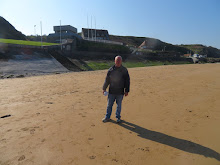In accord with the chaotic year just past, I only read 8 books in 2017. I am currently reading three other books simultaneously but I am bogged down in all three, although one has become more informative and interesting near the end (I have ten more dense pages to go on a study by an academic on Japan's rush to war with the U.S. in 1941), another book I'll eventually struggle through because it is classic literature by Virginia Woolf but I'm not getting its point yet, and the last one is a tedious survey of the last 500 years of community histories following the Columbian Exchange. I expect you'll read about these books next year here.
The best book I read was Hell to Pay by D.M. Giangreco, copyright 2009 & 2017, a detailed study of detailed American and Japanese war plans in 1945 for the Americans' final assault on the Japanese Empire's home islands in 1945 (on Kyushu) and 1946 (on Hokkaido). It would have been hell, with a million casualties on the American side and ten million or more on the Japanese side, with tactical use of nuclear bombs by the Americans on the battlefield, over which the American infantrymen would traverse because of the immature realization at the time of radioactive aftereffects. It was gruesome if laborious reading to me because my Dad was a combat Marine in the theatre, with two horrific battles already engaged in (Peleliu and Okinawa), and he almost certainly would have been killed at age 21 in the bloody assault. Perhaps you can already guess how I feel about the use of two nuclear bombs on Japanese cities (which induced Japan to surrender) and whether its use in Asia was "racist" or not (these bombs would certainly have been used on Germany when available if that country hadn't already been overcome). Japan had over 15,000 radar-evading wooden-framed kamikaze planes hidden away in hardened, hidden hangars for the final battle (three times as many as the American planners reckoned on), thousands of similarly radar-invisible wooden high speed suicide boats collected for use against the Allied armada, and many combat-hardened divisions brought over from China dug in at and behind all the invasion beaches (they knew by deduction exactly where the Allies would land), just waiting for the ultimate Gotterdammerung.
A close second as the best book I read last year is The Unvanquished by William Faulkner, a novel published in 1938. Using exquisite language and spellbinding descriptions, Faulkner deals head-on with the racial problem in America, focusing on the racist South where racism was casual and non-controversial, a white author using the N-word liberally and casually. Because, like it or not, that's the way it actually was back then, whether you want to deny it and ban it or not. I loved this book, about the family majordomo, Granny, who keeps the family together during the waning days of the Civil War when the menfolk are away fighting. With the help of her teen grandson's companion slave, a very clever boy the same age as her kin and raised in the household with him, she bilks the invading Yankees out of much livestock (which she distributes to the needy) and scores of contraband (liberated) slaves (whom she sent back to their "homes," where else did they have to go?) who represented a drag upon the bluecoats' offensive impetus. This matriarch's death at the hands of a band of renegade Rebel deserters in one last sham transaction leads to a tale of devastating southern vengeance.
The other half-dozen books I read were interesting (like Last to Die (2015) by Stephen Harding, about the last U.S. airman to die in the air on a photo reconnaissance mission over Japan two days after the Japanese acceptance of the Allies' surrender terms, at the hands of fanatical Japanese fighter pilots who refused to accede to the Emperor's surrender dictum) or not (like Operation Barbarossa (2011) by Christian Hartman, a formulaic short account of Hitler's dreary war in Russia which doomed his Third Reich practically from the outset of this onslaught). Here are the remainder of the books I read last year in addition to those already mentioned: Monty's Men (2013) by John Buckley, an account of the British and Canadian armies under the command of British General Bernard Montgomery in northwest Europe after D-Day; Lincoln and His Generals (1952) by T. Harry Williams, any description of the Young Napoleon, General George McClellan who prolonged the war by years due to his megalomania and indecisiveness, is always interesting; The First World War (1998) by John Keegan, an insightful and pithy exposition of the run-up to the conflict and an insightful and pithy exposition of its aftereffects sandwiched around 400 pages of dreary recounting of large armies on the move; and Sinai Victory by S.L.A. Marshall (1956) about the abortive but successful Israeli military takeover of the Sinai peninsula in 1956 on a shoestring basis, sort of a precursor to the 1967 war which forged the modern Middle East.
Wednesday, January 3, 2018
Subscribe to:
Post Comments (Atom)

No comments:
Post a Comment